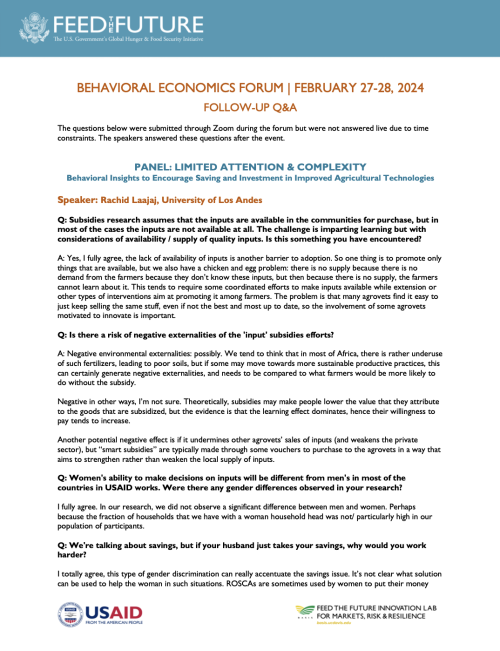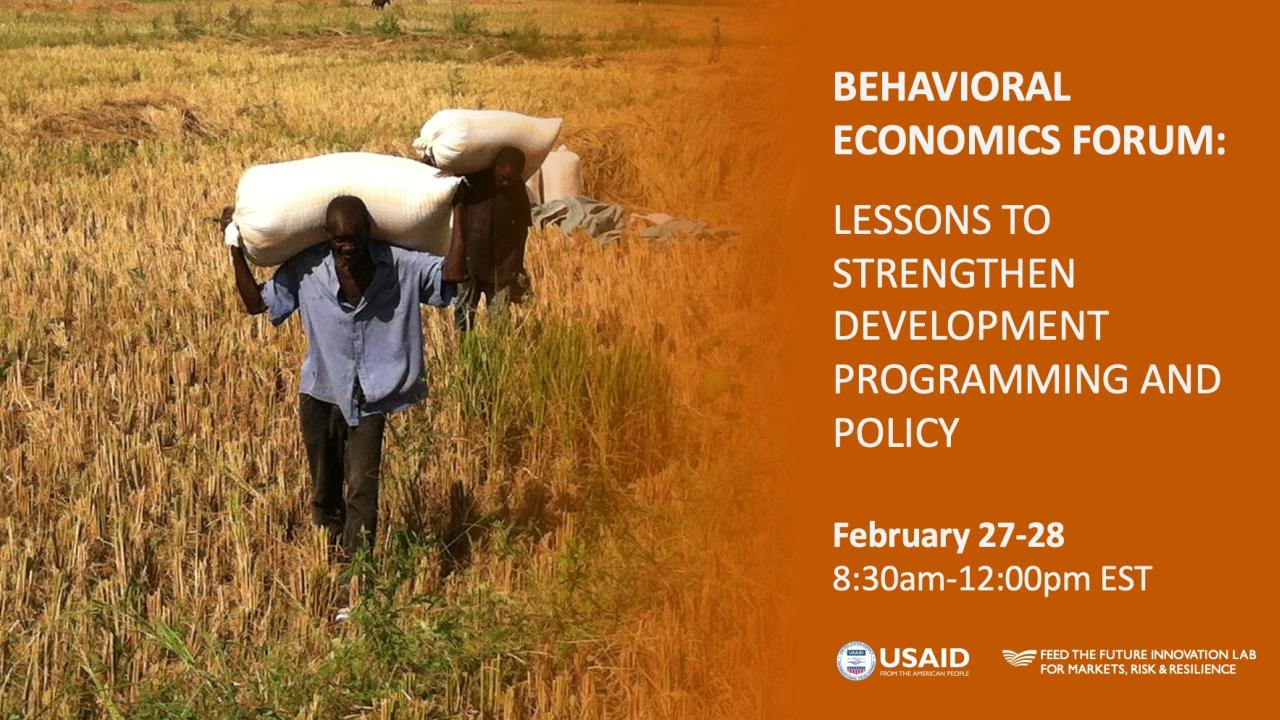
Event Date
Forum Overview
Economic development program strategies are often based on the implicit assumption that people will make predictable decisions that maximize their economic well-being. However, human behavior in the real world often deviates from the forecasts of simple economic models. Behavioral economics helps us understand the psychological, cognitive, and socio-cultural factors that can significantly impact the way people act and the decisions they make. These insights can be valuable to the design of economic development interventions.
The Feed the Future Innovation Lab for Markets, Risk and Resilience hosted a “Behavioral Economics Forum” to lay out the promise and pitfalls of applying behavioral economics in development programming. The focus of the two days was how key evidence from advances in behavioral economics can be practically incorporated into interventions and policy for more effective development impacts.
The Forum was held in person at the USAID Annex in Washington, D.C. with an option to participate online.
Introductory Remarks
February 27 | 8:30 am
Mia Beers, Deputy Assistant Administrator, USAID Bureau for Resilience, Environment and Food Security

Mia Beers
USAID
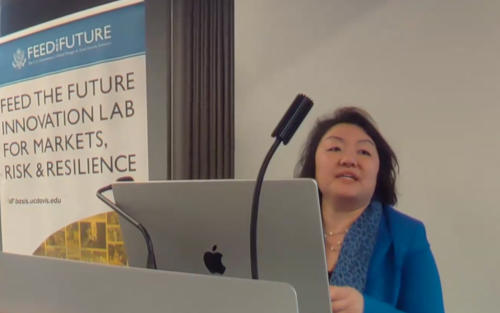
PANEL: OVERVIEW
February 27 | 8:45-10:00 am
This panel of experts provided a broad introduction to Behavior Economics, and discussed the opportunities and limitations of behavioral approaches to development practice. The session also served to outline and advertise the remaining Deep Dive sessions.

Michael Carter
University of
California, Davis

Dean Karlan
USAID

Catherine Thomas
University of Michigan

Rachid Laajaj
University of
Los Andes, Bogotá
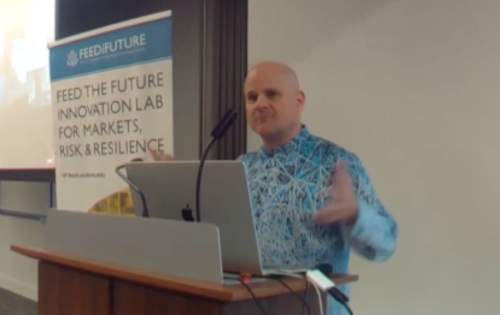
PANEL: LIMITED ATTENTION & COMPLEXITY
Behavioral Insights to Encourage Savings and Investment in Improved Agricultural Technologies
February 27 | 10:30am-12:00pm
Behavioral barriers hinder the adoption of agricultural technologies. Behavioral factors like limited attention and complexity of learning can exacerbate challenges such as information deficits, risk aversion, and financial constraints. The scarcity of information regarding benefits from the technology increases farmers' perceived risks, while distrust and complexity deter adoption of profitable opportunities. Furthermore, poverty itself can diminish both the capacity to learn and the tendency to plan ahead, leading to a behavioral poverty trap. Typical interventions may alleviate these behavioral obstacles through strategies like nudges, commitments, or timely assistance, while some interventions may alter skills and behaviors over the long term. Effective implementation of these approaches necessitates a thorough understanding of the constraints specific to each situation.

Rachid Laajaj
University of
Los Andes

Lauren Bergquist
Yale University

Andrew Dillon
Northwestern University
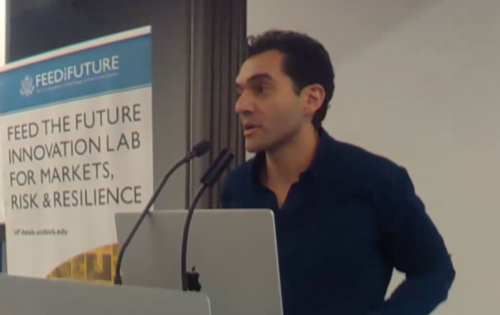
Relevant Literature:
Laalaj, R. (2017), Endogenous time horizon and behavioral poverty trap: Theory and evidence from Mozambique, Journal of Development Economics, 187-208.
PANEL: ASPIRATIONS, AGENCY, AND MENTAL HEALTH
Strategies for Addressing Psychosocial Constraints in Poverty Reduction
February 28 | 8:30-10:00am
Poverty is multi-dimensional, imposing not only financial constraints but also often social-psychological constraints. These include lower aspirations for a better future, a diminished sense of agency over one’s fate, and worse mental health—specifically, higher rates of depression and anxiety. In turn, these features of poverty can negatively affect individuals’ psychosocial well-being as well as their engagement and success in anti-poverty programs. Material approaches to poverty reduction may be necessary but insufficient. Evidence exists around ‘best bets’ for building agency and aspirations through empowering aid communications—through visualization, role modeling, and media and through life skill trainings in goal setting. There are promising future directions to be pursued in addressing mental health, along with pitfalls to avoid. Ultimately, addressing aspirations and agency in the design of aid programs can improve outcomes and program effectiveness.

Catherine Thomas
University of Michigan

Nathan Jensen
University of Edinburgh

Andres Moya
University of Los Andes
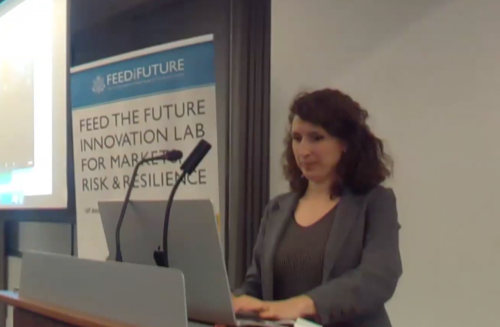
Relevant Literature:
Sánchez-Ariza, J., Cuartas, J., Moya, A. (2023). The Mental Health of Caregivers and Young Children in Conflict-Affected Settings. AEA Papers and Proceedings 113: 336-341.
Zheng, G., Carter, M., Jensen, N., Krovetz, L. (2023). Psychosocial Constraints, Impact Heterogeneity and Spillovers in a Multifaceted Graduation Program in Kenya. NBER Working Paper 31611.
PANEL: DECISION MAKING IN THE FACE OF RISK & UNCERTAINTY
Designing Insurance Contracts to Improve Well-being and Technology Adoption
February 28 | 10:30-11:45am
There is a plethora of evidence that weather and other shocks make people worse off and that the risk of those shocks may inhibit adoption of profitable investments and opportunities. While the technical development of remote sensing and other tools would be expected to enable insurance contracts that help families manage that risk, the actual reception of those contracts has often been tepid. Reasons for this reception are many, including poorly designed and highly priced contracts (which no one should buy) and the lack of understanding or trust in contracts by potential clients. In addition, a long history of behavioral economics research that suggests that many people do not process information on risk and probabilities in the ways that insurance designers presume. Building on this research, a handful of projects have worked on designing contracts in ways that are more approachable. In addition, this same research offers important insights into understanding when risk management instruments like insurance will actually make people better off according to their own preferences. Finally, caution is in order when using behavioral nudges to bolster uptake of insurance contracts. Insurance is a complex product and unconditionally nudging people to purchase it may actually harm individuals whom the solution is intended to help.

Michael Carter
University of
California, Davis

Karlijn Morsink
Utrecht University

Glenn Harrison
Georgia State University
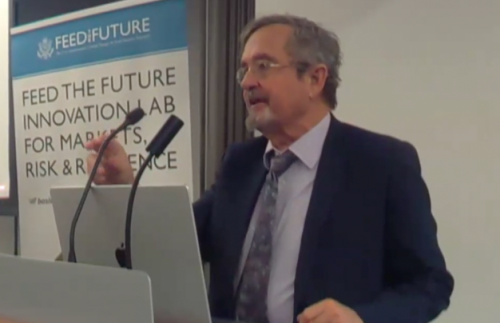
Relevant Literature:
Closing Remarks
February 28 | 11:45 am
Ann Vaughan, Deputy Assistant Administrator, USAID Bureau for Resilience, Environment and Food Security

Ann Vaughan
USAID
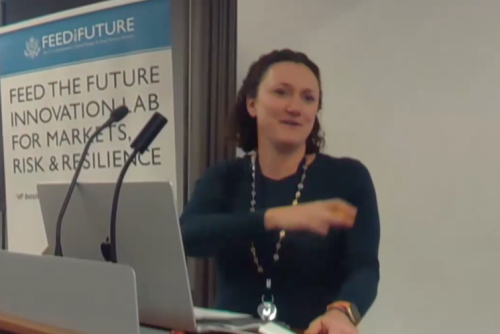
Q&A
After the Forum, speakers responded to questions not answered during the event.
